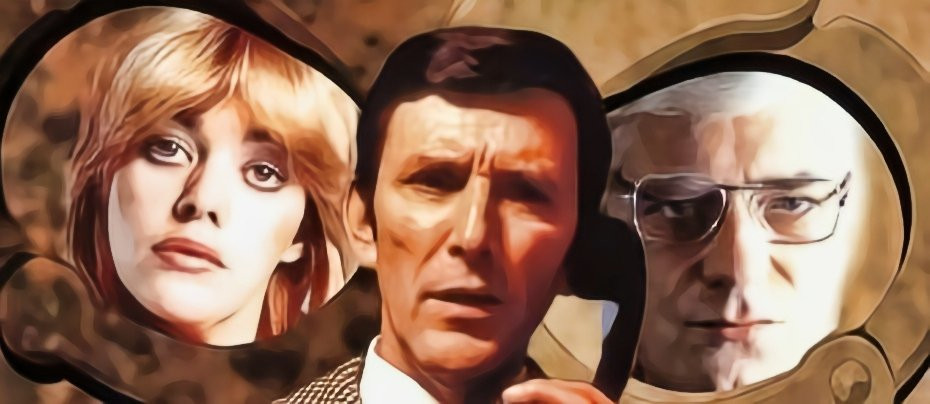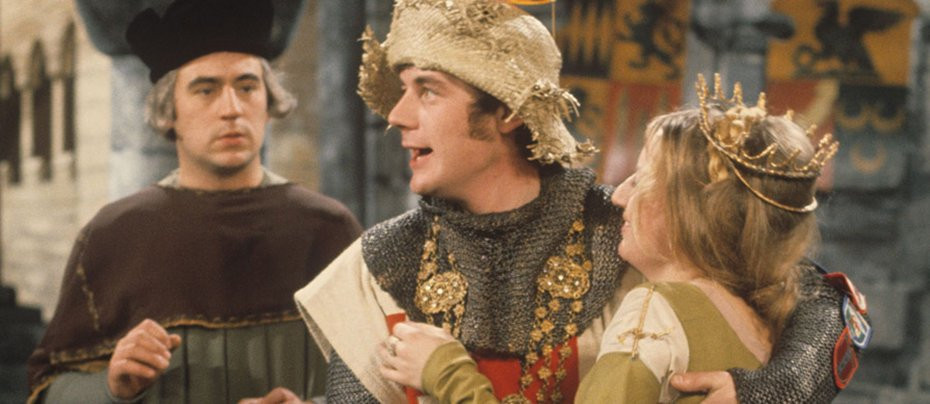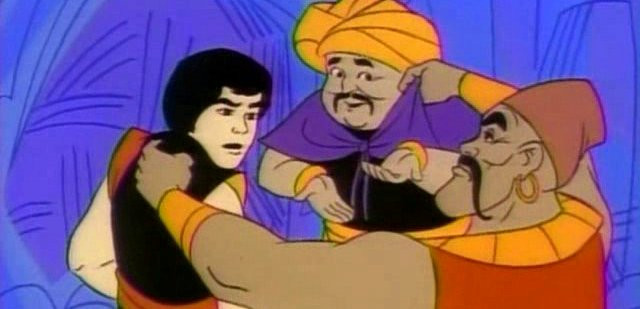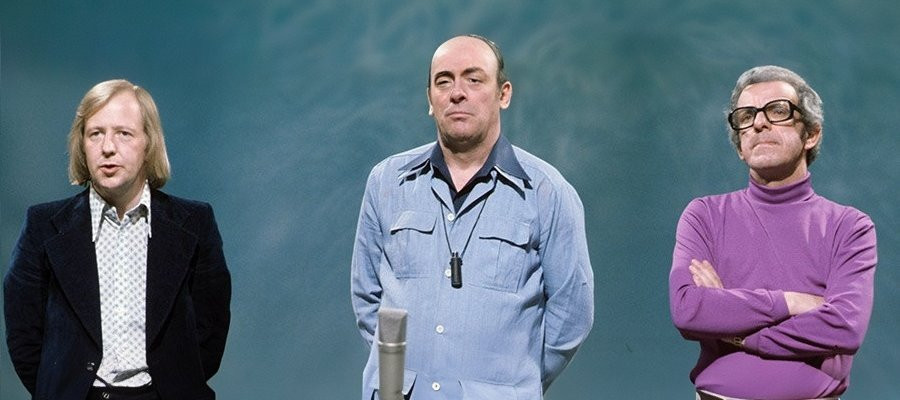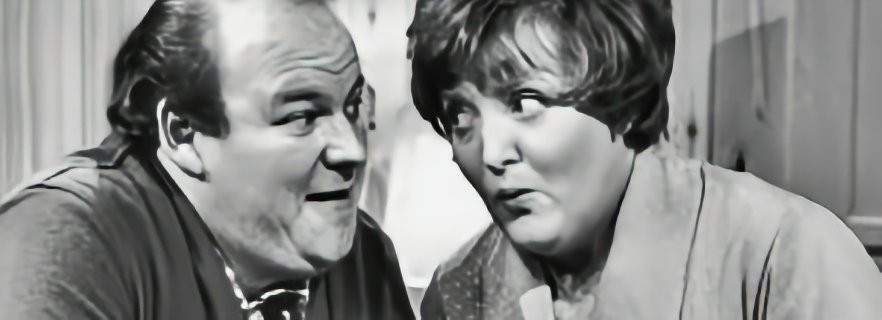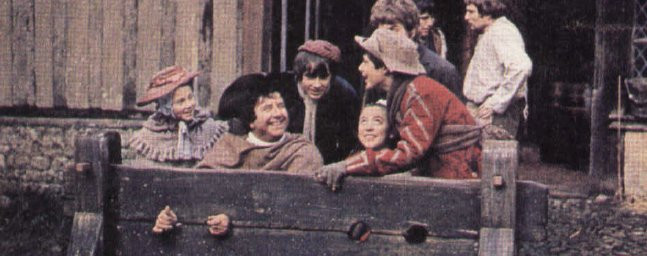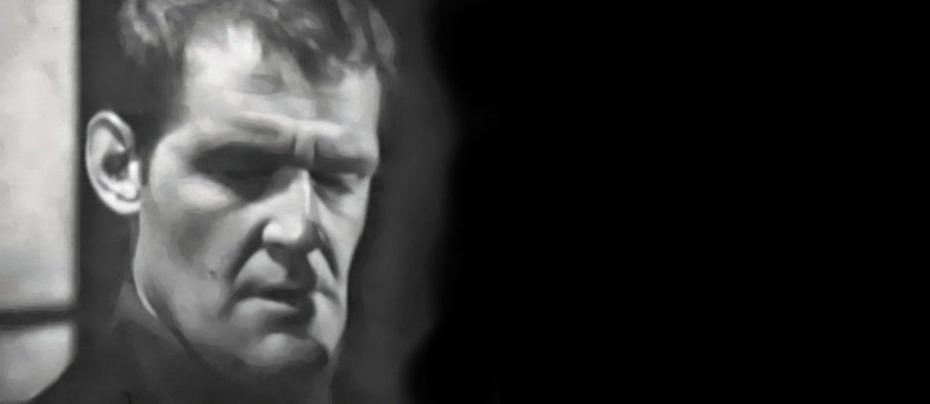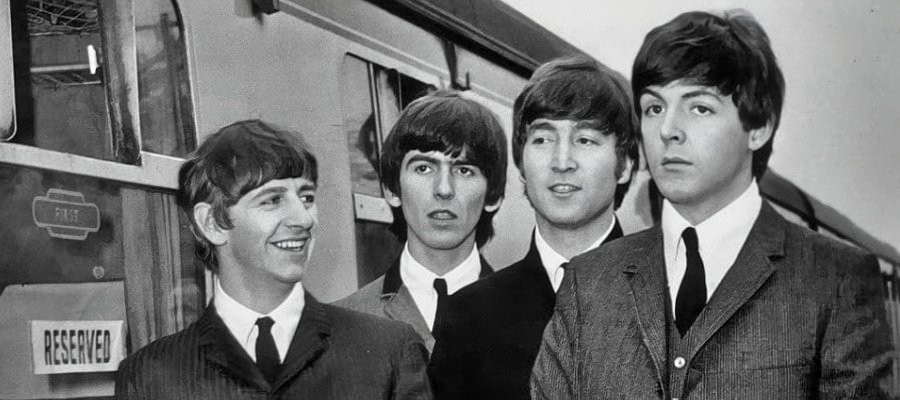
It's Marty
1968 - United KingdomIt was John Cleese who first suggested that scriptwriter Marty Feldman make his debut in front of the camera's for At Last The 1948 Show in 1967, realising that the 34-year-old Eastenders’ natural comedic timing, personality and appearance would be a big hit with the television audience. At first Feldman resisted, subconscious of his bulging eyes, the result of an earlier operation for a severe thyroid condition. But Cleese persisted, Feldman relented, and a major new star was born.
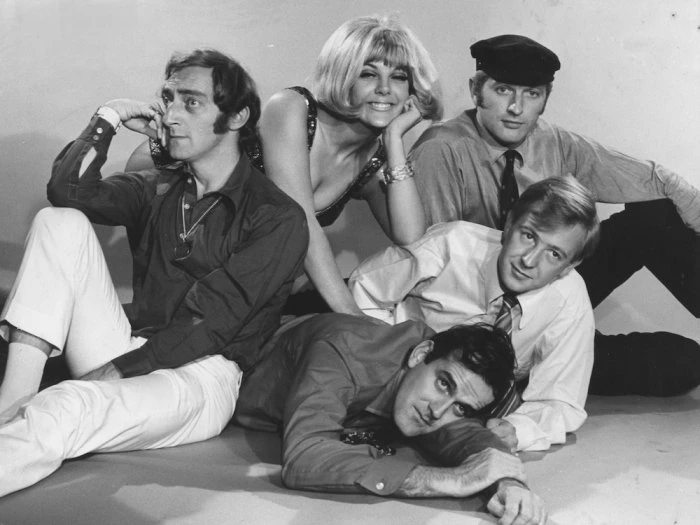
Feldman had actually appeared on screen before. In 1956, he and his writing partner Barry Took had appeared in a number of skits on various ATV afternoon shows, but he was much happier working behind the scenes. As a result the pair produced scripts for radio and television both separately and together. Took wrote the radio show Beyond Our Ken and Feldman wrote Educating Archie and together they wrote for The Army Game and later its spin-off Bootsie and Snudge. But their partnership had become somewhat strained whilst working on the radio show Round the Horne and, after writing for Bernard Braden's series The Braden Beat, the two scriptwriters decided to go their separate ways on a permanent basis.
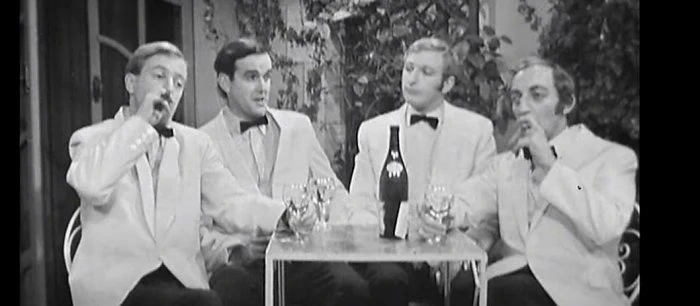
Feldman became the head scriptwriter for The Frost Report where he first met John Cleese and other members of Frost's writing team, Graham Chapman, Terry Jones and Michael Palin. David Frost always had an eye for talent and was keen to capitalise on their comedic talents and with Tim Brooke-Taylor added to their team At Last the 1948 Show was born. One of the sketches that Feldman co-wrote featured four retired Yorkshiremen reminiscing about their upbringing, and as the conversation progresses, they try to outdo each other by concocting stories about their deprived childhoods. As each lie unfolds it becomes increasingly outrageous and absurd. Feldman's sense of humour was, for that period, far more aggressive and outlandish than audiences had come to expect and with the seeds of Monty Python's Flying Circus being sown, Feldman made an immediate impact.
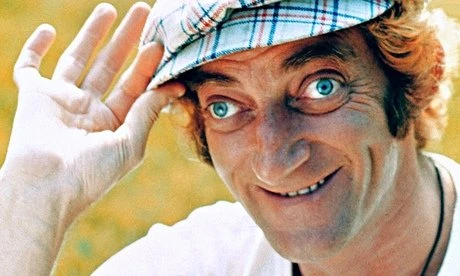
Within a year Feldman was whisked off to the BBC, given his own show and the experience of Dennis Main Wilson to produce two series of 6 - 30-minute sketch shows, which went on to win the Writers Guild of Great Britain Award for Best Light Entertainment Series as well as a BAFTA for Best Script. Although the main writers were Feldman and Barry Took many of the future Python team contributed sketches, and whilst John Cleese, Graham Chapman, Terry Jones and Michael Palin remained firmly behind the scenes, two other writers Brooke-Taylor and John Junkin joined Feldman in front of camera. Feldman and Brooke-Taylor often dressed up as an obnoxious and aggressive husband and wife who would terrorise counter service staff at a variety of venues such as the post office or a travel agent to hilarious effect. Some of the other sketches are as fondly remembered as the best that 'Python' had to offer, among them 'The Day in the Life of a Stunt Man,' 'The Loneliness of the Long Distance Golfer,' 'A Night in the Life of a Chartered Accountant' and one memorable sketch in which Feldman pays a visit to the vet with a rather large basket in tow.
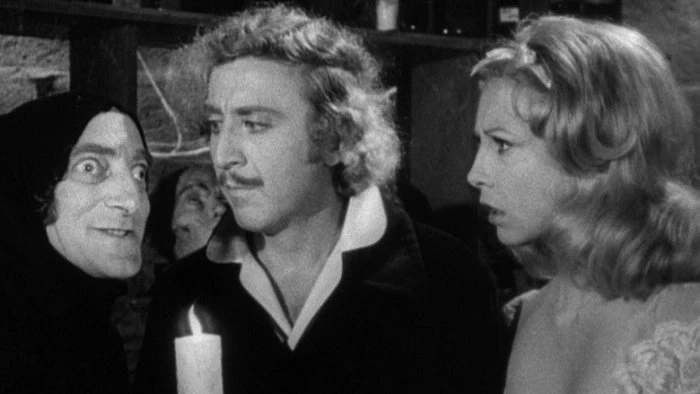
The shows, originally aired on BBC2, very quickly got repeat runs on the main BBC1 channel where they immediately shot to No. 4 in the ratings and made Feldman a household name. It's Marty (sometimes simply referred to as Marty) won the Writers' Guild of Great Britain Award for the Best Light Entertainment Series and a BAFTA for Best Script. In 1970 Feldman, Took and Denis Norden scripted a feature film entitled Every Home Should Have One and the star was soon on his way to Hollywood to co-star in both Mel Brooks' Silent Movie alongside Dom De Luise, Sid Caesar and a host of guest stars from Burt Reynolds to Liza Minnelli, before appearing in the comedy classic Young Frankenstein, as the hilariously funny hunchback with the mobile hump, Ygor.
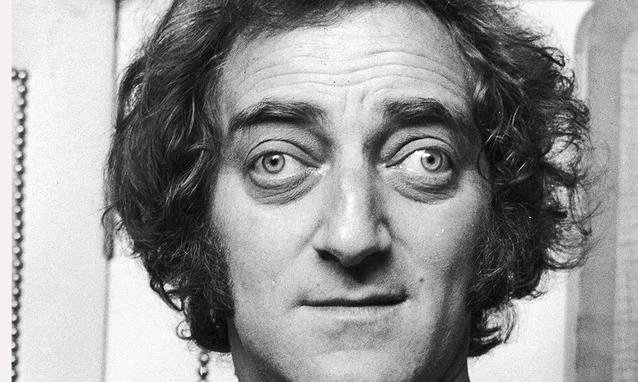
After the two series of It’s Marty, Feldman only really made one more full-length series for TV, The Marty Feldman Comedy Machine in 1971, which was suggested by Larry Gelbart, an American producer living in the UK at that time, who thought that Feldman would be a huge hit with US audiences. Always with an eye on programmes he could sell to the USA, Lew Grade financed the series for ATV and scripts were written with an American audience in mind. But The Marty Feldman Comedy Machine failed to reach the dizzy heights of its predecessor (while Gelbart went on to develop the hit TV series M*A*S*H) and Feldman eventually settled in the USA. After this his career went into decline and he died of a heart attack whilst filming the Graham Chapman scripted movie Yellowbeard in 1982.
Unfairly eclipsed by the massive comedic shadow cast by Monty Python, Marty Feldman's crucial contribution to this seminal sub-genre of surreal humour has remained neglected and underappreciated for far too long. Subversive, surreal and perhaps ultimately self-destructive, Marty Feldman's genius as both writer and performer undoubtedly qualifies him as one of the great unsung heroes of British comedy.
Seen this show? How do you rate it?
Seen this show? How do you rate it?
Published on May 19th, 2022. Written by Laurence Marcus for Television Heaven.


